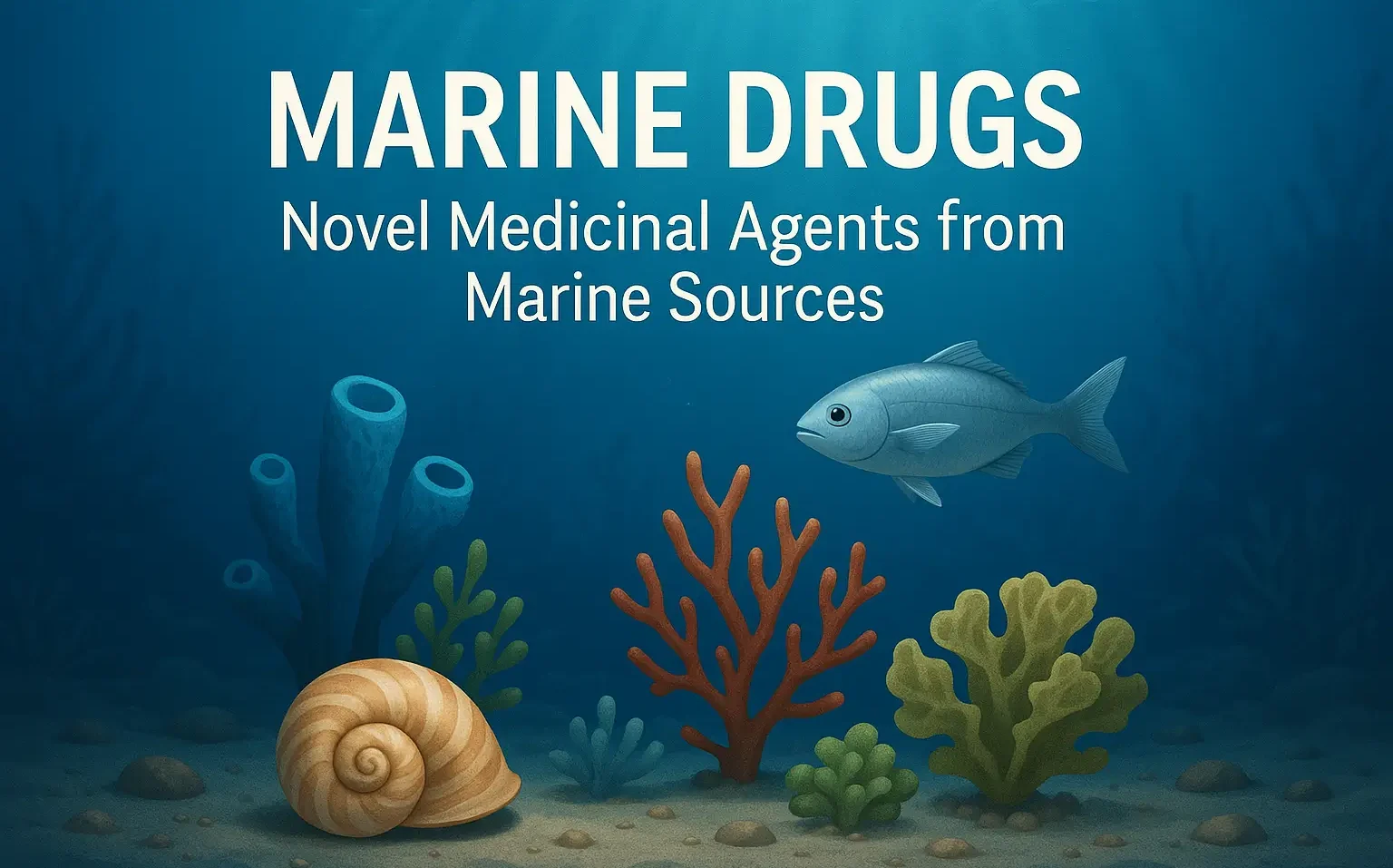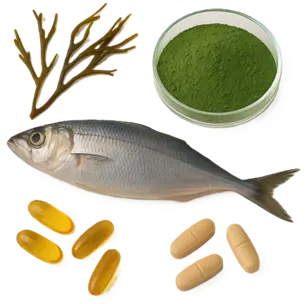- Marine Drugs: Novel Medicinal Agents from Marine Sources offer unique bioactive compounds with therapeutic value.
- Marine Drugs: Novel Medicinal Agents from Marine Sources provide leads for cancer, infection, and inflammation treatments.
Introduction
- The marine ecosystem, largely unexplored, harbors biologically active compounds with immense therapeutic potential.
- Adaptations to extreme environments have led marine organisms to produce unique secondary metabolites, many of which serve as novel drug candidates.
- Marine-derived compounds have significantly contributed to pharmaceuticals, offering new treatments for cancer, infectious diseases, neurological disorders, and inflammation.
Marine-Derived Drug Discovery
Key marine sources of medicinal compounds include sponges, tunicates, algae, mollusks, and marine bacteria. Some notable drug categories include:
-
Anticancer Agents
- Trabectedin (Yondelis®) – From the tunicate Ecteinascidia turbinata, used for soft tissue sarcoma and ovarian cancer.
- Brentuximab vedotin (Adcetris®) – An antibody-drug conjugate utilizing monomethyl auristatin E, derived from the sea hare Dolabella auricularia, for lymphoma treatment.
-
Antiviral and Antimicrobial Compounds
- Vidarabine (Ara-A) – A nucleoside analog from the sponge Tectitethya crypta, used against herpes simplex virus.
- Marinopyrrole A – An antibiotic from Streptomyces species, effective against Staphylococcus aureus.
-
Neuroprotective and Analgesic Compounds
- Ziconotide (Prialt®) – A synthetic ω-conotoxin MVIIA from Conus magus venom, used for chronic pain management.
- Pseudopterosins – Anti-inflammatory diterpene glycosides from Pseudopterogorgia elisabethae, with potential for neurodegenerative diseases.
-
Immunomodulatory and Anti-Inflammatory Agents
- Fucosylated chondroitin sulfate – From sea cucumbers, showing promise in arthritis and cardiovascular diseases.
- Salinosporamide A (Marizomib) – A proteasome inhibitor from Salinispora tropica, being explored for multiple myeloma and glioblastoma.
Challenges and Future Perspectives
- Despite their potential, marine drugs face challenges:
- Limited supply – Many metabolites are produced in small quantities.
- Complex structures – Synthesis and modifications can be difficult.
- Environmental concerns – Sustainable sourcing is crucial.
- Advancements in marine biotechnology, synthetic biology, and metagenomics are aiding scalable production, ensuring continued discovery of novel marine-derived therapeutics
Click Here to Watch the Best Pharma Videos


